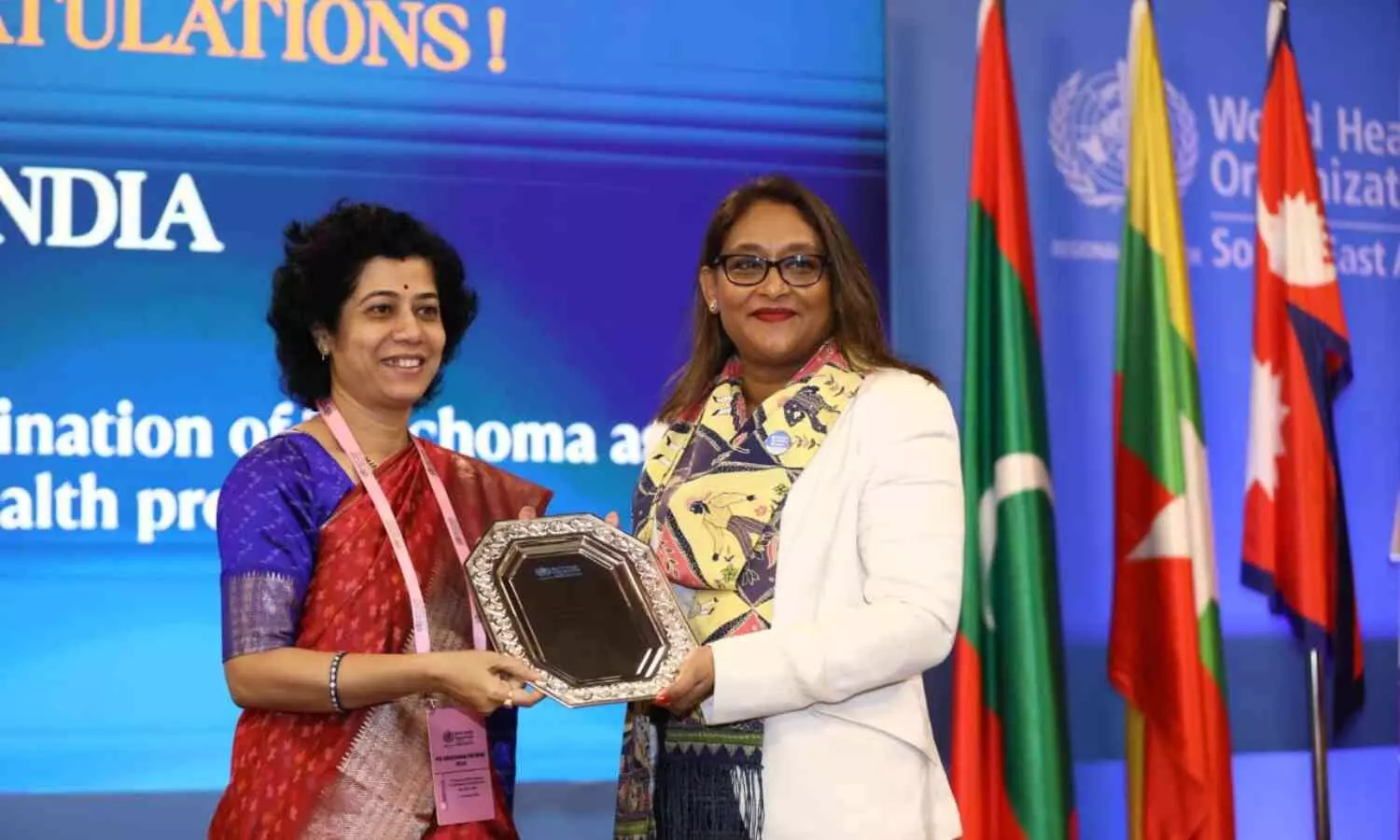WHO Honors Bhutan, India, Timor-Leste, Maldives, and Sri Lanka for Public Health Milestones

New Delhi: The World Health Organization (WHO) today recognized Bhutan for reaching interim targets for cervical cancer elimination, India for successfully eliminating trachoma, and Timor-Leste for eliminating lymphatic filariasis.
Additionally, Maldives and Sri Lanka were honored for their efforts in controlling Hepatitis B in children. Six other countries were commended for achieving Sustainable Development Goals (SDG) and global targets in reducing under-five mortality and stillbirth rates.
“The progress being made is the Region is heartening. I congratulate countries for their achievements which demonstrates their commitment to health and wellbeing of people. I look forward to together building on this momentum to further accelerate efforts for equitable access to health services for all in our Region in the coming years,” said Saima Wazed, Regional Director WHO South-East Asia, at ‘Public Health Awards’ event at the Seventy Seventh Regional Committee Session being held here. She presented a plaque and citation to each Member State for their achievements.
Bhutan was honored for meeting the 2030 interim targets for eliminating cervical cancer as a public health concern, becoming the first country in the region to achieve this major milestone.
These interim targets, known as the 90-70-90 goals, include vaccinating 90% of girls against Human papillomavirus (HPV) by age 15, screening 70% of women with a high-performance test by ages 35 and 45, and ensuring 90% of women diagnosed with cervical disease receive treatment.
“The success of the Royal Government of Bhutan is driven by strong leadership, favourable health policies, organized health systems, well-defined country priorities, motivated health workforce, and efficient coordination by the Ministry of Health. Active community participation and collaboration with partners have also contributed significantly. The achievement is especially commendable considering that the major part of the capacity building was carried out when COVID-19 was at its peak,” the Regional Director said.
India was felicitated for elimination of trachoma as a public health problem. India is the third country in the Region after Nepal and Myanmar to achieve this feat.
“India’s success is due to the strong leadership of its government and the commitment of ophthalmologists and other cadres of health-care workers. They worked together with partners to ensure effective surveillance, diagnosis and management of active trachoma, provision of surgical services for trichiasis, and promotion of water, sanitation and hygiene, particularly facial cleanliness, among communities,” the Regional Director said.
Timor-Leste was awarded for elimination of lymphatic filariasis as a public health problem.
“Timor-Leste’s achievement is driven by the strong leadership of its government, dedication of health-care workers, and active participation of the community in collaboration with partners. Together, they have ensured high-quality mass drug administration campaigns, effective surveillance, management of cases with chronic lymphatic filariasis, and promoted community engagement to stop transmission and support those affected by the disease,” Wazed said. Timor-Leste is the fifth country in the Region to eliminate lymphatic filariasis.
Acknowledging Maldives and Sri Lanka for achieving hepatitis B control, the Regional Director stated that preventing hepatitis B infection in children helps significantly reduce chronic infections and cases of liver cancer and cirrhosis later in life.
Bhutan was also recognized for meeting the Sustainable Development Goals (SDG) and global 2030 targets in reducing under-five mortality and stillbirth rates.
The Democratic People’s Republic of Korea, Indonesia, Maldives, Sri Lanka, and Thailand were also awarded for achieving the SDG and global targets for reducing under-five mortality, neonatal mortality, and stillbirth rates.
The SDG 3.2 target aims to reduce the under-five mortality rate to 25 or fewer per 1,000 live births, neonatal mortality to 12 or fewer per 1,000 live births, and stillbirths to 12 or fewer per 1,000 births by 2030.


